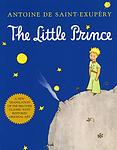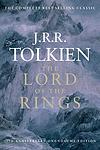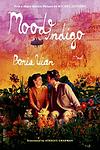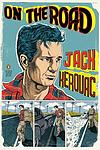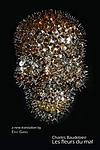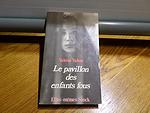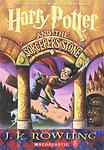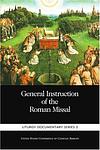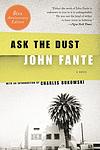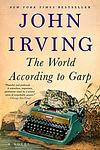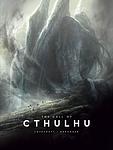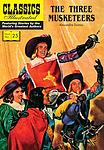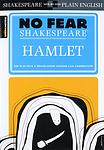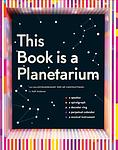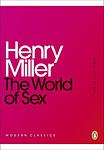The 500 best books of all time from Culture Café users
This is one of the 284 lists we use to generate our main The Greatest Books list.
-
Journey to the End of The Night by Louis-Ferdinand Céline
The novel is a semi-autobiographical work that explores the harsh realities of life through the cynical and disillusioned eyes of the protagonist. The narrative follows his experiences from the trenches of World War I, through the African jungles, to the streets of America and the slums of Paris, showcasing the horrors of war, colonialism, and the dark side of human nature. The protagonist's journey is marked by his struggle with despair, loneliness, and the absurdity of existence, offering a bleak yet profound commentary on the human condition.
-
The Stranger by Albert Camus
The narrative follows a man who, after the death of his mother, falls into a routine of indifference and emotional detachment, leading him to commit an act of violence on a sun-drenched beach. His subsequent trial becomes less about the act itself and more about his inability to conform to societal norms and expectations, ultimately exploring themes of existentialism, absurdism, and the human condition.
-
Nineteen Eighty Four by George Orwell
Set in a dystopian future, the novel presents a society under the total control of a totalitarian regime, led by the omnipresent Big Brother. The protagonist, a low-ranking member of 'the Party', begins to question the regime and falls in love with a woman, an act of rebellion in a world where independent thought, dissent, and love are prohibited. The novel explores themes of surveillance, censorship, and the manipulation of truth.
-
The Little Prince by Antoine de Saint-Exupéry
A young prince from a tiny asteroid embarks on a journey across the universe, visiting various planets and meeting their strange inhabitants. Along the way, he learns about the follies and absurdities of the adult world, the nature of friendship, and the importance of retaining a childlike wonder and curiosity. His journey eventually leads him to Earth, where he befriends a fox and learns about love and loss before finally returning to his asteroid.
-
The Lord of the Rings by J. R. R. Tolkien
This epic high-fantasy novel centers around a modest hobbit who is entrusted with the task of destroying a powerful ring that could enable the dark lord to conquer the world. Accompanied by a diverse group of companions, the hobbit embarks on a perilous journey across Middle-earth, battling evil forces and facing numerous challenges. The narrative, rich in mythology and complex themes of good versus evil, friendship, and heroism, has had a profound influence on the fantasy genre.
-
One Hundred Years of Solitude by Gabriel Garcia Marquez
This novel is a multi-generational saga that focuses on the Buendía family, who founded the fictional town of Macondo. It explores themes of love, loss, family, and the cyclical nature of history. The story is filled with magical realism, blending the supernatural with the ordinary, as it chronicles the family's experiences, including civil war, marriages, births, and deaths. The book is renowned for its narrative style and its exploration of solitude, fate, and the inevitability of repetition in history.
-
The Count of Monte Cristo by Alexandre Dumas
A young sailor, unjustly accused of treason, is imprisoned without trial in a grim fortress. After a daring escape, he uncovers a hidden treasure and transforms himself into the mysterious and wealthy Count of Monte Cristo. He then sets out to exact revenge on those who wronged him, using his newfound power and influence. Throughout his journey, he grapples with questions about justice, vengeance, and whether ultimate power can ultimately corrupt.
-
Belle du Seigneur by Albert Cohen
"Belle du Seigneur" is a tragic love story set in the 1930s, revolving around a high-ranking Jewish official who works for the League of Nations and his passionate affair with a married Swiss aristocrat. The narrative delves deep into their intense relationship, exploring themes of obsession, self-destruction, and existential despair, all set against the backdrop of the impending Second World War. The novel is also notable for its satirical portrayal of diplomatic life and its exploration of Jewish identity.
-
In Search of Lost Time by Marcel Proust
This renowned novel is a sweeping exploration of memory, love, art, and the passage of time, told through the narrator's recollections of his childhood and experiences into adulthood in the late 19th and early 20th century aristocratic France. The narrative is notable for its lengthy and intricate involuntary memory episodes, the most famous being the "madeleine episode". It explores the themes of time, space and memory, but also raises questions about the nature of art and literature, and the complex relationships between love, sexuality, and possession.
-
Perfume by Patrick Suskind
Set in 18th-century France, this novel tells the story of Jean-Baptiste Grenouille, a man born with an extraordinary sense of smell but no personal scent of his own. He becomes an apprentice to a prominent perfumer and learns to create the world's most intoxicating perfumes. However, his obsession with capturing the perfect scent leads him down a dark path, as he begins to kill young women to extract their scent. The book is a chilling exploration of obsession, identity, and the power of scent.
-
Les Misérables by Victor Hugo
Set in early 19th-century France, the narrative follows the lives and interactions of several characters, particularly the struggles of ex-convict Jean Valjean and his journey towards redemption. The story touches upon the nature of law and grace, and elaborates upon the history of France, architecture of Paris, politics, moral philosophy, antimonarchism, justice, religion, and the types and nature of romantic and familial love. It is known for its vivid and relatable characters, and its exploration of societal and moral issues.
-
Crime and Punishment by Fyodor Dostoevsky
A young, impoverished former student in Saint Petersburg, Russia, formulates a plan to kill an unscrupulous pawnbroker to redistribute her wealth among the needy. However, after carrying out the act, he is consumed by guilt and paranoia, leading to a psychological battle within himself. As he grapples with his actions, he also navigates complex relationships with a variety of characters, including a virtuous prostitute, his sister, and a relentless detective. The narrative explores themes of morality, redemption, and the psychological impacts of crime.
-
Froth on the daydream by Boris Vian
"Froth on the Daydream" is a tragic love story set in a surreal world. The protagonist is a wealthy young man who marries a woman he loves deeply. However, their bliss is short-lived when she develops a strange illness - a water lily growing in her lung. As her health deteriorates, so does their wealth and social standing, leading to a bleak and heartbreaking end. This novel is a poignant exploration of love, loss, and the harsh realities of life, all set within a fantastical and dreamlike landscape.
-
Madame Bovary by Gustave Flaubert
Madame Bovary is a tragic novel about a young woman, Emma Bovary, who is married to a dull, but kind-hearted doctor. Dissatisfied with her life, she embarks on a series of extramarital affairs and indulges in a luxurious lifestyle in an attempt to escape the banalities and emptiness of provincial life. Her desire for passion and excitement leads her down a path of financial ruin and despair, ultimately resulting in a tragic end.
-
On the Road by Jack Kerouac
This novel follows the story of a young man and his friend as they embark on a series of cross-country road trips across America during the late 1940s and early 1950s. The protagonist, driven by a desire for freedom and a quest for identity, encounters a series of eccentric characters and experiences the highs and lows of the Beat Generation. The narrative is a testament to the restlessness of youth and the allure of adventure, underscored by themes of jazz, poetry, and drug use.
-
The Picture of Dorian Gray by Oscar Wilde
The novel follows the life of a handsome young man who, after having his portrait painted, is upset to realize that the painting will remain beautiful while he ages. After expressing a wish that the painting would age instead of him, he is shocked to find that his wish comes true. As he indulges in a life of hedonism and immoral acts, his portrait becomes increasingly grotesque, reflecting the damage his actions have on his soul. The story serves as a cautionary tale about the dangers of vanity, selfishness, and the pursuit of pleasure without regard for consequences.
-
American Psycho by Bret Easton Ellis
The novel is a disturbing and graphic exploration of the mind of a wealthy, young and handsome Wall Street investment banker who is also a psychopathic serial killer. He leads a double life, appearing to be a charming and sophisticated businessman by day, while indulging in horrific acts of violence and murder by night. The narrative provides a satirical critique of 1980s American consumer culture, vanity, and excess, while also delving into the dark underbelly of human nature.
-
Wuthering Heights by Emily Brontë
This classic novel is a tale of love, revenge and social class set in the Yorkshire moors. It revolves around the intense, complex relationship between Catherine Earnshaw and Heathcliff, an orphan adopted by Catherine's father. Despite their deep affection for each other, Catherine marries Edgar Linton, a wealthy neighbor, leading Heathcliff to seek revenge on the two families. The story unfolds over two generations, reflecting the consequences of their choices and the destructive power of obsessive love.
-
The Road by Cormac McCarthy
In a post-apocalyptic world, a father and his young son journey through a desolate landscape, struggling to survive. They face numerous threats including starvation, extreme weather, and dangerous encounters with other survivors. The father, who is terminally ill, is driven by his love and concern for his son, and is determined to protect him at all costs. The story is a haunting exploration of the depths of human resilience, the power of love, and the instinct to survive against all odds.
-
The Flowers of Evil by Charles Baudelaire
"The Flowers of Evil" is a collection of poems that explore themes of decadence and eroticism, and the changing nature of beauty in the rapidly industrializing Paris during the 19th century. The work is renowned for its exploration of the paradoxes of pleasure and pain, the exotic and the commonplace, and the boundaries of morality and aesthetics. The poems challenge traditional notions of good and evil, suggesting that beauty can be found in unexpected and even disturbing places.
-
The Plague by Albert Camus
The novel is set in the Algerian city of Oran during the 1940s, where a deadly plague sweeps through, causing the city to be quarantined. The story is told through the eyes of a doctor who witnesses the horror and suffering caused by the disease. The narrative explores themes of human resilience, solidarity, and the struggle against the absurdities of life. It also examines how individuals and society respond to death and disease, creating a profound meditation on the nature of existence and human endurance.
-
The Odyssey by Homer
This epic poem follows the Greek hero Odysseus on his journey home after the fall of Troy. It takes Odysseus ten years to reach Ithaca after the ten-year Trojan War. Along the way, he encounters many obstacles including mythical creatures, divine beings, and natural disasters. Meanwhile, back in Ithaca, his wife Penelope and son Telemachus fend off suitors vying for Penelope's hand in marriage, believing Odysseus to be dead. The story concludes with Odysseus's return, his slaughter of the suitors, and his reunion with his family.
-
The Name of the Rose by Umberto Eco
Set in a wealthy Italian monastery in the 14th century, the novel follows a Franciscan friar and his young apprentice as they investigate a series of mysterious deaths within the monastery. As they navigate the labyrinthine library and decipher cryptic manuscripts, they uncover a complex plot involving forbidden books, secret societies, and the Inquisition. The novel is a blend of historical fiction, mystery, and philosophical exploration, delving into themes of truth, knowledge, and the power of the written word.
-
A Confederacy of Dunces by John Kennedy Toole
The novel is a comedic satire set in New Orleans in the early 1960s, centered around Ignatius J. Reilly, a lazy, eccentric, highly educated, and socially inept man who still lives with his mother. Ignatius spends his time writing a lengthy philosophical work while working various jobs and avoiding the responsibilities of adulthood. The story follows his misadventures and interactions with a colorful cast of characters in the city, including his long-suffering mother, a flamboyant nightclub owner, a beleaguered factory worker, and a frustrated hot dog vendor.
-
Pride and Prejudice by Jane Austen
Set in early 19th-century England, this classic novel revolves around the lives of the Bennet family, particularly the five unmarried daughters. The narrative explores themes of manners, upbringing, morality, education, and marriage within the society of the landed gentry. It follows the romantic entanglements of Elizabeth Bennet, the second eldest daughter, who is intelligent, lively, and quick-witted, and her tumultuous relationship with the proud, wealthy, and seemingly aloof Mr. Darcy. Their story unfolds as they navigate societal expectations, personal misunderstandings, and their own pride and prejudice.
-
Don Quixote by Miguel de Cervantes
This classic novel follows the adventures of a man who, driven mad by reading too many chivalric romances, decides to become a knight-errant and roam the world righting wrongs under the name Don Quixote. Accompanied by his loyal squire, Sancho Panza, he battles windmills he believes to be giants and champions the virtuous lady Dulcinea, who is in reality a simple peasant girl. The book is a richly layered critique of the popular literature of Cervantes' time and a profound exploration of reality and illusion, madness and sanity.
-
The Ice People by Unknown
The book in question is a speculative fiction novel set in a dystopian future where a sudden and severe ice age has gripped the Earth, leading to the collapse of civilization and the emergence of a new society. The story follows the protagonist, a historian, who discovers the truth about the ice age's origins and the existence of an advanced prehistoric civilization. As the protagonist delves deeper into the past, he uncovers startling revelations about humanity's history and the cyclical nature of human progress and decline, all while navigating the challenges of life in a frozen world.
-
The Brothers Karamazov by Fyodor Dostoevsky
This classic novel explores the complex, passionate, and troubled relationship between four brothers and their father in 19th century Russia. The narrative delves into the themes of faith, doubt, morality, and redemption, as each brother grapples with personal dilemmas and family conflicts. The story culminates in a dramatic trial following a murder, which serves as a microcosm of the moral and philosophical struggles faced by each character, and by extension, humanity itself.
-
Martin Eden by Jack London
The novel follows the life of a poor, self-educated sailor who becomes a successful writer. The protagonist struggles to rise above his social class, driven by his love for a refined, upper-class woman. His journey leads him through various experiences, from physical labor to intellectual pursuits, highlighting the challenges of social mobility and the disillusionment that often accompanies success. Despite achieving his dreams, he becomes disenchanted with the very society he sought to join, leading to a tragic end.
-
And Then There Were None by Agatha Christie
In this classic mystery novel, ten strangers are invited to a secluded mansion on a private island by a mysterious host who is nowhere to be found. As the guests begin to die one by one, mirroring a creepy nursery rhyme that hangs in each of their rooms, they realize that the killer is among them. As suspicion and fear escalate, they must uncover the murderer before no one remains.
-
The Unbearable Lightness of Being by Milan Kundera
Set against the backdrop of the Prague Spring period of Czechoslovak history, the novel explores the philosophical concept of Nietzsche's eternal return through the intertwined lives of four characters: a womanizing surgeon, his intellectual wife, his naïve mistress, and her stoic lover. The narrative delves into their personal struggles with lightness and heaviness, freedom and fate, love and betrayal, and the complexities of human relationships, all while offering a profound meditation on the nature of existence and the paradoxes of life.
-
Lolita by Vladimir Nabokov
The novel tells the story of Humbert Humbert, a man with a disturbing obsession for young girls, or "nymphets" as he calls them. His obsession leads him to engage in a manipulative and destructive relationship with his 12-year-old stepdaughter, Lolita. The narrative is a controversial exploration of manipulation, obsession, and unreliable narration, as Humbert attempts to justify his actions and feelings throughout the story.
-
Dangerous Liaison by Pierre Choderlos de Laclos
"Dangerous Liaison" is a tale of manipulation, revenge, and seduction set in the French aristocracy before the French Revolution. The novel follows the Marquise de Merteuil and the Vicomte de Valmont, two rivals who use sex as a weapon to humiliate and degrade others, all the while enjoying their cruel games. Their targets are the virtuous (and married) Madame de Tourvel and the young Cecile de Volanges. The book is a dramatic exploration of decadence, corruption, and ultimate retribution.
-
Le Pavillon Des Enfants Fous by Valérie Valère
The book is a harrowing autobiographical novel that delves into the experiences of a teenage girl confined in a psychiatric hospital. Through her eyes, readers are exposed to the stark and often disturbing realities of mental health treatment in the institution, as she grapples with her own mental illness. The narrative provides a raw and poignant exploration of the protagonist's struggle for identity and understanding amidst the challenges of her environment, shedding light on the often misunderstood world of psychiatric care and the resilience of the human spirit in the face of adversity.
-
The Shadow of the Wind by Carlos Ruiz Zafon
The novel follows the story of a young boy in post-war Barcelona, who discovers a mysterious book in a hidden library that his father takes him to, which houses forgotten books. The boy becomes captivated by the book and its author, but as he grows older, he realizes that someone is destroying all books written by this author. As he delves deeper into the mystery, the boy's life becomes intertwined with the author's, revealing a dark and tragic past that someone wants to be kept hidden. The story is a mix of romance, mystery, and a historical narrative set against the turbulent backdrop of a city recovering from war.
-
The Idiot by Fyodor Dostoevsky
The book follows the story of a kind-hearted and naive protagonist who returns to Russia from a Swiss sanatorium, where he was treated for a severe epileptic condition. Despite his pure intentions, he gets entangled in a web of love, greed, and manipulation, leading to tragic consequences. The novel explores themes of innocence, love, sacrifice, and societal expectations, offering a profound critique of Russian society during the 19th century.
-
Breakfast at Tiffany's by Truman Capote
This classic novella explores the life of a young writer in New York City and his relationship with his neighbor, a charismatic and eccentric woman who lives off the generosity of wealthy men. The woman, who dreams of a life of luxury and freedom, captivates the writer with her charm and mystery. The story is a poignant examination of love, friendship, identity, and the struggle for personal freedom in a society bound by conventions.
-
The Great Gatsby by F. Scott Fitzgerald
Set in the summer of 1922, the novel follows the life of a young and mysterious millionaire, his extravagant lifestyle in Long Island, and his obsessive love for a beautiful former debutante. As the story unfolds, the millionaire's dark secrets and the corrupt reality of the American dream during the Jazz Age are revealed. The narrative is a critique of the hedonistic excess and moral decay of the era, ultimately leading to tragic consequences.
-
Life, a User's Manual by Georges Perec
The novel explores the lives of the inhabitants of a Parisian apartment block through a complex, multi-layered narrative. It delves into the interconnected stories of the building's residents, revealing their secrets, desires, and disappointments. The narrative is structured like a puzzle, with the author employing a variety of literary styles and devices, making it a complex and intriguing exploration of human life.
-
War and Peace by Leo Tolstoy
Set in the backdrop of the Napoleonic era, the novel presents a panorama of Russian society and its descent into the chaos of war. It follows the interconnected lives of five aristocratic families, their struggles, romances, and personal journeys through the tumultuous period of history. The narrative explores themes of love, war, and the meaning of life, as it weaves together historical events with the personal stories of its characters.
-
The Trial by Franz Kafka
The book revolves around a bank clerk who wakes one morning to find himself under arrest for an unspecified crime. Despite not being detained, he is subjected to the psychological torment of a bizarre and nightmarish judicial process. The story is a critique of bureaucracy, exploring themes of guilt, alienation and the inefficiency of the justice system.
-
Harry Potter And The Philosopher's Stone by J. K Rowling
The story follows a young boy, Harry Potter, who learns on his 11th birthday that he is the orphaned son of two powerful wizards and possesses unique magical powers of his own. He is summoned from his life as an unwanted child to become a student at Hogwarts, an English boarding school for wizards. There, he meets several friends who become his closest allies and help him discover the truth about his parents' mysterious deaths, the dark wizard who wants to kill him, and the magical stone that holds immense power.
-
Brave New World by Aldous Huxley
Set in a dystopian future, the novel explores a society where human beings are genetically bred and pharmaceutically conditioned to serve in a ruling order. The society is divided into five castes, each with its specific roles. The narrative follows a savage who rejects the norms of this new world order and struggles to navigate the clash between the values of his upbringing and the reality of this technologically advanced, emotionless society. His resistance prompts a deep examination of the nature of freedom, individuality, and happiness.
-
The Bible by Unknown
The Bible is the central religious text of Christianity, comprising the Old and New Testaments. It features a diverse collection of writings including historical narratives, poetry, prophecies, and teachings. These texts chronicle the relationship between God and humanity, detail the life, death, and resurrection of Jesus Christ, and follow the early Christian church. Considered divinely inspired by believers, it serves as a foundational guide for faith and practice, influencing countless aspects of culture and society worldwide.
-
L'assommoir by Émile Zola
The novel is a gritty portrayal of working-class life in 19th-century Paris, focusing on the struggles of Gervaise Macquart, a laundress who aspires to a better life. After her lover abandons her with two children, she marries a roofer, Coupeau, and they initially find happiness and modest prosperity. However, their lives spiral downward due to alcoholism, poverty, and the harsh realities of their social environment. The narrative delves into the impact of addiction on family dynamics and the broader community, painting a vivid and unflinching picture of the urban poor's descent into despair and degradation.
-
Ask The Dust by John Fante
The novel follows the story of an aspiring young writer of Italian-American descent living in Los Angeles during the Great Depression. Struggling to make his mark in the world of literature, he grapples with poverty, his own insecurities, and a tumultuous love affair with a fiery Mexican waitress. As he navigates the gritty underbelly of the city, he seeks to find his voice and identity amidst the dust and desperation of his surroundings, often confronting the challenges of prejudice and his own personal demons. The narrative is a raw and introspective journey through the pursuit of the American Dream, as seen through the eyes of a conflicted and passionate protagonist.
-
The Girl with the Dragon Tattoo by Stieg Larsson
A disgraced journalist is hired by a wealthy industrialist to solve a forty-year-old mystery involving the disappearance of his niece. He is assisted in his investigation by a brilliant but deeply troubled hacker. As they delve deeper into the mystery, they uncover a twisted web of family secrets, corruption, and murder. The story is a dark and gripping exploration of Swedish society, as well as a thrilling mystery.
-
The World According to Garp by John Irving
The novel follows the life of T.S. Garp, the illegitimate son of a feminist mother, who becomes a writer. Garp's life is filled with unusual experiences and characters, from his unconventional conception to his untimely death. He navigates through a world filled with sexual violence, infidelity, and gender issues, and his life story is punctuated by his own literary creations. His mother's feminist ideals and the tragic events of his life deeply influence his writing and worldview.
-
Dune by Frank Herbert
Set in a distant future, the novel follows Paul Atreides, whose family assumes control of the desert planet Arrakis. As the only producer of a highly valuable resource, jurisdiction over Arrakis is contested among competing noble families. After Paul and his family are betrayed, the story explores themes of politics, religion, and man’s relationship to nature, as Paul leads a rebellion to restore his family's reign.
-
The Red and the Black by Stendhal
The novel is a detailed psychological portrait of Julien Sorel, a young man from a provincial background who aspires to rise above his humble beginnings. He uses his intelligence and hypocrisy to advance in the post-Napoleonic French society, which is deeply divided by class and political loyalties. The story is a critique of the society's materialism and hypocrisy as Julien's ambitions lead him to a tragic end. The title refers to the contrasting uniforms of the army and the church, the two routes available to him for upward mobility.
-
Jane Eyre by Charlotte Bronte
The novel follows the life of Jane Eyre, an orphan who is mistreated by her relatives and sent to a charity school. As she grows up, Jane becomes a governess at Thornfield Hall, where she falls in love with the brooding and mysterious Mr. Rochester. However, she soon learns of a dark secret in his past that threatens their future together. The story is a profound exploration of a woman's self-discovery and her struggle for independence and love in a rigid Victorian society.
-
Pensées by Blaise Pascal
"Pensées" is a collection of philosophical and theological thoughts and ideas by a renowned French mathematician and physicist. The book delves into various aspects of human existence, exploring the nature of faith, reason, and the human condition. It also presents arguments for the existence of God, including the famous wager argument. The book is known for its profound insights into the human experience and its exploration of the complexities of belief and doubt.
-
The Fruits of the Earth by André Gide
"The Fruits of the Earth" is a philosophical novel that follows the journey of a young man who abandons his home and travels around the world in search of pleasure and personal freedom. The protagonist's hedonistic pursuit of happiness and self-discovery leads him to various exotic locations where he indulges in sensual experiences and intellectual pursuits. The novel explores themes of existentialism, individualism, and the pursuit of personal desires, challenging conventional morality and societal norms.
-
Les Amours by Pierre Ronsard
"Les Amours" is a collection of French Renaissance poetry that delves into the themes of love and beauty through the passionate and often idealized lens of the poet. The work is renowned for its lyrical style and the use of classical and pastoral imagery, reflecting the poet's infatuation with a woman named Cassandre. The poems oscillate between the joys and sorrows of love, capturing the intensity of youthful desire and the pain of unrequited affection. The poet's mastery of verse and his influence on the French language are evident as he navigates the complexities of love with eloquence and emotional depth.
-
Ada or Ardor by Vladimir Nabokov
Set in an alternate universe where Earth is known as "Antiterra," the novel follows the lives of Ada and Van, two wealthy siblings who fall into a passionate and incestuous love affair. Their relationship evolves over a span of 70 years, as they navigate through family secrets, personal tragedies, and the complex nature of time. The book is a blend of romance, science fiction, and philosophical exploration, all told through the author's signature wordplay and intricate narrative style.
-
The Call Of Cthulhu by H. P. Lovecraft
In this classic tale of cosmic horror, a series of fragmented narratives converge to reveal the discovery of an ancient and malevolent entity, Cthulhu, lying dormant beneath the sea. After a series of strange events and encounters with bizarre cults, the protagonist uncovers the truth about the creature's terrifying influence on the minds of sensitive individuals across the globe. As the narrative unfolds through found documents, diary entries, and firsthand accounts, the monstrous figure of Cthulhu emerges as a symbol of the incomprehensible and indifferent forces that lurk beyond the edges of human understanding, waiting for the moment to reawaken and engulf the world in madness and chaos.
-
The Master and Margarita by Mikhail Bulgakov
This novel is a complex narrative that weaves together three distinct yet intertwined stories. The first story is set in 1930s Moscow and follows the devil and his entourage as they wreak havoc on the city's literary elite. The second story is a historical narrative about Pontius Pilate and his role in the crucifixion of Jesus Christ. The third story is a love story between the titular Master, a writer who has been driven to madness by the criticism of his work, and his devoted lover, Margarita. The novel is a satirical critique of Soviet society, particularly the literary establishment, and its treatment of artists. It also explores themes of love, sacrifice, and the nature of good and evil.
-
Gaspard De La Nuit by Aloysius Bertrand
"Gaspard de la Nuit" is a collection of prose poems that delve into the supernatural and fantastical, painting a vivid picture of the nocturnal and mysterious. The work is pioneering in its form, blending poetry with narrative in a way that prefigures the Symbolist movement. It is structured as a series of eerie and atmospheric vignettes that transport the reader to a medieval world filled with phantoms, goblins, and the Parisian bohème. Each piece is a blend of macabre humor, picturesque detail, and gothic romanticism, creating a tapestry of dreamlike and haunting images that challenge the boundaries between reality and imagination.
-
Lady Chatterley's Lover by D. H. Lawrence
"Lady Chatterley's Lover" is a controversial novel that explores themes of class, sexuality, and the human condition. The story revolves around a young, upper-class woman married to a paralyzed war veteran who, feeling emotionally and physically neglected, embarks on a passionate affair with the estate's gamekeeper. The narrative delves into the protagonist's sexual awakening and her struggle against societal norms, ultimately advocating for emotional honesty and physical intimacy as essential components of a fulfilling life.
-
The Alchemist by Paulo Coelho
A young Andalusian shepherd named Santiago dreams of finding a worldly treasure and sets off on a journey across the Egyptian desert in search of it. Along the way, he encounters a series of characters who impart wisdom and help guide his spiritual journey. The novel explores themes of destiny, personal legend, and the interconnectedness of all things in the universe. The boy learns that true wealth comes not from material possessions, but from self-discovery and attaining one's "Personal Legend".
-
Treasure Island by Robert Louis Stevenson
This classic adventure novel tells the story of young Jim Hawkins, who stumbles upon a treasure map and embarks on a perilous journey to find the buried treasure. Along the way, he encounters a host of memorable characters, including the cunning and treacherous Long John Silver. The narrative is filled with action, intrigue, and suspense, as Hawkins and his companions face pirates, mutiny, and other dangers in their quest for the hidden treasure.
-
Empire Of The Ants by Bernard Werber
In this novel, readers are plunged into a fascinating and complex world beneath their feet, where an ant civilization thrives with its own sophisticated society, technology, and culture. The story intertwines the lives of these ants with the human world, particularly through the experiences of a family that inherits a mysterious apartment in Paris, which hides secrets linked to the ant empire. As the narrative unfolds, the book explores themes of coexistence, the nature of intelligence, and the intricate balance of ecosystems, challenging the reader to consider the world from an entirely different perspective and to question humanity's place within the grand scheme of life.
-
East of Eden by John Steinbeck
This novel is a multi-generational epic that follows the lives of the Trask and Hamilton families in the Salinas Valley in California. The story is deeply rooted in biblical allegory, particularly the tale of Cain and Abel, as it explores themes of love, guilt, freedom, and the inherent good and evil in human nature. The narrative provides a profound, complex portrayal of family and individual struggles with morality and love, while also reflecting on the social changes affecting America during the late 19th and early 20th centuries.
-
It by Stephen King
A group of seven childhood friends, known as The Losers Club, come together in their small hometown to confront an evil entity that they first battled as children. This malevolent force, which often takes the form of a terrifying clown, preys on the children of their town by exploiting their deepest fears. The friends must confront their own personal demons and past traumas in order to once again face this entity, and the novel alternates between their childhood and adult experiences with this evil.
-
Death on Credit by Louis-Ferdinand Céline
"Death on Credit" is a semi-autobiographical novel that explores the life of a young Frenchman in Paris during the early 20th century. The protagonist, a medical student from a poor family, struggles with the harsh realities of life, including poverty, sickness, and death. The narrative is marked by its dark humor, cynicism, and scathing critique of society, reflecting the author's own experiences and views. The protagonist's journey is a constant struggle against the absurdity and despair of existence, depicted through a series of episodic adventures and misadventures.
-
The Catcher in the Rye by J. D. Salinger
The novel follows the story of a teenager named Holden Caulfield, who has just been expelled from his prep school. The narrative unfolds over the course of three days, during which Holden experiences various forms of alienation and his mental state continues to unravel. He criticizes the adult world as "phony" and struggles with his own transition into adulthood. The book is a profound exploration of teenage rebellion, alienation, and the loss of innocence.
-
Moon Palace by Paul Auster
"Moon Palace" tells the story of Marco Stanley Fogg, an orphaned young man in New York City who embarks on a journey of self-discovery. As he ventures into the American West and delves into his family's past, he encounters a series of adventures and misadventures that challenge his understanding of identity, love, and the very nature of reality. The novel is a complex and symbolic exploration of American mythology, weaving together themes of solitude, survival, and the pursuit of the American Dream.
-
Demons by Fyodor Dostoevsky
"The Possessed" is a complex political novel set in a provincial Russian town, exploring the destructive influence of radical ideologies on society. The narrative revolves around a group of revolutionaries, their philosophical debates and their destructive actions, driven by nihilism and anarchism. The story is a critique of the political and social chaos of the time, showcasing the author's deep understanding of human psychology and his profound insights into the human condition. It is an exploration of faith, reason, and the nature of freedom and is considered one of the most significant works of Russian literature.
-
Promise at Dawn by Romain Gary
"Promise at Dawn" is a semi-autobiographical novel that explores the life of a young man growing up in Eastern Europe, and later in France, under the shadow of his ambitious and eccentric mother. The protagonist's journey takes him through various phases of his life from his childhood, through his experiences as a pilot in World War II, to his adult life as a diplomat and a writer. The story is a tribute to the protagonist's mother, who instilled in him the values of courage, resilience, and the pursuit of grandeur, even in the face of adversity.
-
Romeo and Juliet by William Shakespeare
This classic play tells the tragic love story of two young individuals from feuding families in Verona, Italy. Despite their families' ongoing conflict, the pair secretly marry and vow to be together, no matter the cost. Their commitment leads to a series of unfortunate events, including misunderstandings, banishments, and ultimately, their untimely deaths. Their demise, however, reconciles their feuding families, leaving a poignant message about the destructive power of hate and the redemptive power of love.
-
Of Mice and Men by John Steinbeck
The book is a tragic tale of two displaced ranch workers during the Great Depression in California. The two main characters, an intelligent but uneducated man and his mentally disabled companion, dream of owning their own piece of land. However, their dreams are thwarted by circumstances beyond their control, leading to a heart-wrenching conclusion. The book explores themes of friendship, dreams, loneliness, and the harsh realities of the American Dream.
-
The Pillars Of The Earth by Ken Follett
Set in the 12th century, the novel is a sweeping epic of good and evil, treachery and intrigue, violence and beauty. It revolves around the construction of a cathedral in the fictional town of Kingsbridge, England. The story is centered on the lives of three main characters: a master builder, a monk, and a noblewoman, whose destinies are intertwined with the building of the cathedral and the tumultuous events of the time, including war, religious strife, and power struggles.
-
The Tartar Steppe by Dino Buzzati
The novel follows a young officer who spends his entire life waiting for an attack that never comes at a remote desert outpost. The protagonist's life is consumed by the monotonous routine and the fear of the unknown, reflecting on the human condition and the dread of the passage of time. The desert symbolizes the emptiness and futility of life, while the constant anticipation of a foreign invasion that never happens represents the anxiety and fear of death.
-
Germinal by Émile Zola
The novel is a bleak and realistic portrayal of coal miners' lives in 19th century France. The protagonist, a young man who starts work in a mine, becomes embroiled in the hardship and exploitation faced by the workers, leading to his involvement in a strike. The story explores themes of poverty, social injustice, and the struggle for workers' rights, while also providing a detailed depiction of mining life, from the dangerous work conditions to the close-knit communities.
-
The Grapes of Wrath by John Steinbeck
The book follows the Joad family, Oklahoma farmers displaced from their land during the Great Depression. The family, alongside thousands of other "Okies," travel to California in search of work and a better life. Throughout their journey, they face numerous hardships and injustices, yet maintain their humanity through unity and shared sacrifice. The narrative explores themes of man's inhumanity to man, the dignity of wrath, and the power of family and friendship, offering a stark and moving portrayal of the harsh realities of American migrant laborers during the 1930s.
-
The Three Musketeers by Alexandre Dumas
Set in 17th century France, the novel follows the adventures of a young man who leaves home to join the Musketeers of the Guard. He befriends three of the most daring musketeers, Athos, Porthos, and Aramis, and together, they navigate political intrigue, love affairs, and duels. Their main enemies are the powerful Cardinal Richelieu and the beautiful but treacherous Milady, who will stop at nothing to bring them down.
-
The Princess of Cleves by Madame de La Fayette
Set in the royal court of Henry II of France, the novel follows the life of a beautiful young woman, newly presented at court, who attracts the attention of many suitors, including the King's son. However, she is married off to a man she does not love, the Prince of Cleves. Despite her loyalty to her husband, she falls in love with the Duke of Nemours. The novel explores themes of duty, honor, and the conflict between passion and reason as the protagonist struggles with her feelings and the moral implications of her love for the Duke.
-
At the Mountains of Madness by H. P. Lovecraft
In this chilling tale, an Antarctic expedition led by Dr. William Dyer from Miskatonic University uncovers ancient, alien ruins and a dangerous secret that forces them to question their understanding of the universe and their own sanity. As they delve deeper into the mystery, they encounter remnants of a prehistoric, monstrous civilization, which they believe could have been the original creators of life on Earth. The story is filled with Lovecraft's signature cosmic horror and themes of forbidden knowledge, non-human influences on humanity, and the insignificance of humans in the universe.
-
Alice's Adventures in Wonderland by Lewis Carroll
This novel follows the story of a young girl named Alice who falls down a rabbit hole into a fantastical world full of peculiar creatures and bizarre experiences. As she navigates through this strange land, she encounters a series of nonsensical events, including a tea party with a Mad Hatter, a pool of tears, and a trial over stolen tarts. The book is renowned for its playful use of language, logic, and its exploration of the boundaries of reality.
-
Wry-Blue Loves: Les Amours Jaunes by Tristan Corbière
"Wry-Blue Loves: Les Amours Jaunes" is a collection of poems that explore themes of love, death, and the sea. Written in a unique style that blends irony, sarcasm, and a sense of melancholy, the author uses vivid and sometimes shocking imagery to challenge conventional romantic ideals and express his own disillusionment with love and life. The sea serves as a recurring motif, symbolizing both the author's Breton heritage and the unpredictable, often cruel nature of existence.
-
On the Heights of Despair by Emil Cioran
"On the Heights of Despair" is a philosophical exploration of the human condition, particularly focusing on themes such as existentialism, despair, and nihilism. The author delves into the idea of life as suffering and the inevitability of death, offering a bleak yet thought-provoking perspective on existence. The work is a profound contemplation of life's absurdity, loneliness, and the struggle to find meaning, presenting an introspective journey into the depths of despair and the heights of existential thought.
-
The Old Man and the Sea by Ernest Hemingway
An aging Cuban fisherman struggles with a giant marlin far out in the Gulf Stream, isolated from the world and from human help. For days, he fights the marlin alone, admiring its strength, dignity, and faithfulness to its identity—its destiny is as true as his as a fisherman. He finally kills the marlin, but sharks attack and devour it before he can return to the shore. The fisherman returns home empty-handed but remains undefeated, having proven his abilities to himself.
-
Hamlet by William Shakespeare
This classic play revolves around the young Prince of Denmark who is thrown into a state of emotional turmoil after his father's sudden death and his mother's quick remarriage to his uncle. The prince is visited by the ghost of his father who reveals that he was murdered by the uncle, prompting the prince to seek revenge. The narrative explores themes of madness, revenge, and moral corruption as the prince navigates the complex political and emotional landscape of the Danish court.
-
The Life Before Us by Romain Gary
The novel is a poignant exploration of the bond between a young Arab boy, Momo, and an elderly Jewish woman, Madame Rosa, who is a Holocaust survivor and former prostitute. Living in the Belleville neighborhood of Paris, Madame Rosa takes care of the children of other prostitutes, and Momo becomes her protégé and closest companion. Through their relationship, the story delves into themes of love, loss, and the resilience of the human spirit in the face of adversity. The narrative, told from Momo's perspective, captures the struggles and the multicultural tapestry of life in a Parisian slum, while also addressing the weight of history and the complexity of identity and belonging.
-
The Demon by Hubert Selby
The book in question is a harrowing exploration of the human psyche, delving into the life of a seemingly successful and respectable man whose inner demons drive him into a spiral of obsession and violence. Despite his outward appearance of normalcy, he is tormented by compulsions that he cannot control, leading him down a dark path that threatens to destroy both himself and those around him. The narrative is a stark and disturbing portrayal of the struggle between societal expectations and the darker aspects of human nature.
-
Heartsnatcher by Boris Vian
The novel is a surreal and satirical tale set in a bizarre town where the eccentric inhabitants live under the oppressive rule of a despotic and whimsical figure. The narrative follows the lives of the townspeople, who are subjected to absurd and often cruel whims that challenge their sanity and morality. As the story unfolds, the characters confront the absurdity of existence, the nature of love and desire, and the struggle for individual freedom against authoritarian control. The book combines elements of fantasy, dark humor, and existential philosophy, creating a unique and thought-provoking exploration of human nature and society.
-
Ulysses by James Joyce
Set in Dublin, the novel follows a day in the life of Leopold Bloom, an advertising salesman, as he navigates the city. The narrative, heavily influenced by Homer's Odyssey, explores themes of identity, heroism, and the complexities of everyday life. It is renowned for its stream-of-consciousness style and complex structure, making it a challenging but rewarding read.
-
Death in Venice by Thomas Mann
"Death in Venice" is a novella that explores the life of Gustav von Aschenbach, a famous writer in his early fifties who embarks on a journey to Venice after experiencing a creative block. In Venice, he becomes obsessed with a beautiful Polish boy named Tadzio, whom he sees at the hotel where he is staying. Aschenbach's fascination with Tadzio becomes a metaphor for his own internal struggle with his repressed passions and his need for aesthetic beauty. The story culminates in Aschenbach's death as a cholera epidemic sweeps through Venice. His demise symbolizes the destructive power of his unfulfilled longing and his ultimate surrender to his repressed desires.
-
The Planetarium by Nathalie Sarraute
In "The Planetarium," the narrative delves into the complex web of human relationships and the subtle power dynamics within a Parisian family. The story unfolds through a series of internal monologues and fragmented conversations, focusing on a young writer who seeks recognition and support from his self-absorbed aunt. The aunt, preoccupied with her own social status and the maintenance of her bourgeois lifestyle, becomes the center of a psychological exploration of pretense, manipulation, and the struggle for authenticity in a world governed by social appearances. The novel dissects the intricacies of familial expectations and the individual's quest for identity amidst the pressures of societal conformity.
-
Lunar Park by Bret Easton Ellis
The novel is a metafictional narrative blending reality and fiction, where a novelist with a tumultuous past grapples with the demons of his personal life, including substance abuse and strained relationships. As he settles into suburban life with his family, bizarre occurrences begin to unfold, blurring the lines between his creations and reality. The protagonist is haunted by the ghost of his father, a mysterious toy that comes to life, and a series of child abductions that eerily echo his own literary work, leading him on a surreal journey of self-discovery and redemption.
-
Silk by Alessandro Baricco
"Silk" is a historical fiction novel that tells the story of a 19th-century French silkworm merchant who travels to Japan for business. During his travels, he becomes enamored with a mysterious woman. His unrequited love for her haunts him for the rest of his life, even as he returns to France and continues his life there. The novel explores themes of love, longing, and the profound impact that brief encounters can have on one's life.
-
Memoirs of Hadrian by Marguerite Yourcenar
"Memoirs of Hadrian" is a historical novel that presents a fictional autobiography of the Roman Emperor Hadrian, who reigned from 117 to 138 AD. Narrated in the first person, the novel explores Hadrian's ascension to the throne, his administration, his love for the young Antinous, and his philosophical reflections on life and death. The narrative is framed as a letter to his successor, Marcus Aurelius, offering insights into the complexities of power, the nature of leadership, and the human condition.
-
World Of Sex by Henry Miller
"World of Sex" is an explicit and candid exploration of human sexuality, delving into the author's personal experiences, philosophical musings, and the broader cultural attitudes towards sex. The work challenges conventional morality and the taboos surrounding sexual expression, advocating for a more liberated and honest approach to discussing and engaging in sexual acts. The author's reflections are interwoven with critiques of societal norms and a call for readers to embrace their desires without shame or guilt, making it a provocative piece that seeks to push the boundaries of how sex is perceived and talked about in society.
-
Tristram Shandy by Laurence Sterne
The novel is a humorous, rambling narrative that chronicles the life of Tristram Shandy. The story is filled with digressions, anecdotes, and eccentric characters, as Tristram often interrupts his own tale to interject commentary or to recount stories from his family's past. Despite the seemingly haphazard structure, the novel is a clever exploration of narrative form and a satirical critique of traditional biographies and novels.
-
Gone With the Wind by Margaret Mitchell
Set against the backdrop of the American Civil War and Reconstruction era, this novel follows the life of a young Southern belle, who is known for her beauty and charm. Her life takes a turn when she is forced to make drastic changes to survive the war and its aftermath. The story revolves around her struggle to maintain her family's plantation and her complicated love life, especially her unrequited love for a married man, and her tumultuous relationship with a roguish blockade runner.
-
To Kill a Mockingbird by Harper Lee
Set in the racially charged South during the Depression, the novel follows a young girl and her older brother as they navigate their small town's societal norms and prejudices. Their father, a lawyer, is appointed to defend a black man falsely accused of raping a white woman, forcing the children to confront the harsh realities of racism and injustice. The story explores themes of morality, innocence, and the loss of innocence through the eyes of the young protagonists.
-
The Castle by Franz Kafka
This novel presents the story of a man who arrives in a village and struggles to gain access to the mysterious authorities who govern it from a castle. The protagonist, a surveyor, faces the constant frustration of his efforts to make contact with the elusive authorities and integrate into village society. The book explores themes of alienation, bureaucracy, the seemingly endless frustrations of man's attempts to stand against the system, and the futile pursuit of an unobtainable goal.
-
The Fall by Albert Camus
The novel is narrated by a successful Parisian lawyer who has moved to Amsterdam after a crisis of conscience. He confesses his past misdeeds and moral failings to a stranger in a bar, revealing his growing self-loathing and disillusionment with the hypocrisy and shallowness of his former life. His confessions are a reflection on guilt, innocence, and the nature of human existence. The protagonist's fall from grace serves as a critique of modern society's moral failings and the individual's struggle with guilt and redemption.
-
The Human Stain by Philip Roth
The Human Stain is a novel that explores the life of Coleman Silk, a classics professor in a small New England town who is forced to retire after accusations of racism. The story delves into Silk's personal history, revealing that he is a light-skinned African American who has been passing as a Jewish man for most of his adult life. His affair with a much younger, illiterate janitor further scandalizes the community. The novel examines themes of identity, race, and the destructive power of public shaming.
-
The Adventures of Oliver Twist by Charles Dickens
This classic novel follows the life of a young orphan named Oliver Twist, who endures a miserable existence in a workhouse and then is placed with an undertaker. He escapes and travels to London where he meets the Artful Dodger, a member of a gang of juvenile pickpockets led by the elderly criminal, Fagin. Despite numerous adversities, Oliver remains pure at heart and is eventually saved from a life of crime, revealing his true identity and claiming his rightful inheritance.
Culture Café, 499 Books
In October 2008, the Culture Café site asked Internet users to vote for their ten favorite books. After collecting 5,000 votes and listing more than 3,000 titles, here are the results of the 500 best chosen by Internet users of the site
Details on the method and classification
- A list of ten books was requested from Internet users, in order of preference of their favorite works (all genres, nationalities, and dates of publication). The votes were anonymous.
- Only the rankings containing the ten titles were counted. The votes containing fewer were automatically deleted by the software.
- The book arriving first in each ranking was awarded ten points, the second nine points, etc.
- The series of novels (Harry Potter, Dune, etc.) have been counted under the generic name of the complete series"
This list has a weight of 52%. To learn more about what this means please visit the Rankings page.
Here is a list of what is decreasing the importance of this list:
- Voters: not critics, authors, or experts
- Voters: are mostly from a single country/location
- List: contains over 500 books(Quantity over Quality)
If you think this is incorrect please e-mail us at [email protected].



